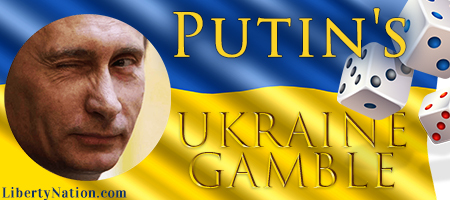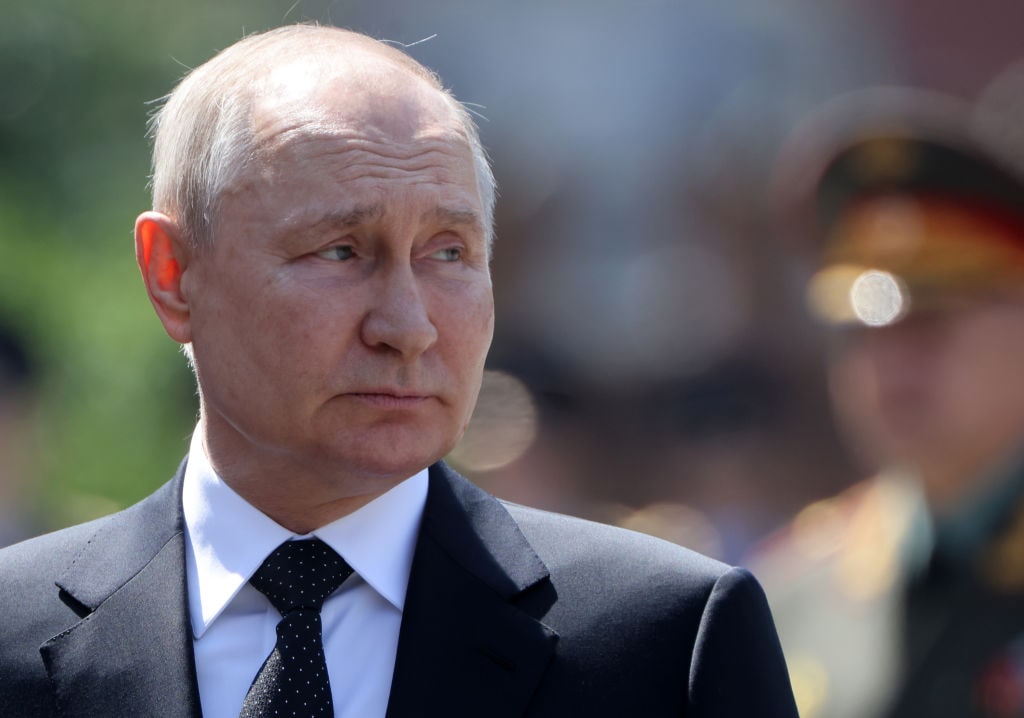Breaking reports from inside Russia claim all is not well for Russian President Vladimir Putin. His once-favorite mercenary mob, the Wagner Group, was in open rebellion for nearly two days. The paramilitary organization led by Yevgeny V. Prigozhin left its encampments in Ukraine and marched for Moscow, occupying Russian military bases in the southern part of the country on the way.
While the latest reports indicate Putin has agreed to drop the charges against Prigozhin and that the mercenaries plan to take refuge in Belarus, the near coup exposed a weakness the Russian president would likely prefer the world never see. Short though it was, the Wagner Group rebellion made everyone ask: Is Putin’s power in peril?
Conflict Coming to a Head
Relations between Prigozhin and Putin have soured rapidly in recent weeks since the irregular fighting force has taken unusually high numbers of killed and wounded in Russia’s unprovoked invasion of Ukraine. Additionally, Prigozhin has been ruthlessly critical of the Russian military leadership and the Kremlin for mishandling the war. The Russian oligarch and private army leader complained bitterly the Kremlin deployed his forces to Ukraine and then failed to supply them with ammunition in the middle of the fighting around Bakhmut and Donbas.
The first hint something was going on came on Friday, June 23, when Prigozhin accused “the Russian military of ordering strikes that killed ‘an enormous amount’ of his troops at Wagner camps in Ukraine and seemed determined to exact his revenge. He ordered what he called a march of justice to Moscow,” James Hookway reported in The Wall Street Journal. The alleged attack on the Wagner Group was the latest feud between Prigozhin and the Kremlin’s military leadership, specifically Sergei Shoigu, Russian minister of defense, and Chief of the General Staff Valery Gerasimov. Prigozhin has called for the removal of the two Russian senior military officers for incompetence and blames Shoigu and Gerasimov for the deaths of so many Russian regular soldiers and at least 50,000 Wagner fighters since December of 2022.
Wagner Group Puts Putin in the Crosshairs
Consequently, in the early hours of Saturday, June 24, “Wagner Group forces had crossed from Russian-occupied parts of Ukraine to Russia in at least two locations and had ‘almost certainly’ occupied key security sites in Rostov-on-Don, including the headquarters which runs Russian military operations in Ukraine,” the British Intelligence Ministry reported according to Reuters. Capturing Rostov-on-Don was significant since it is a Russian military headquarters and command and control node directing Russian operations in Ukraine.
 Sky News reports an explosion setting an oil depot on fire in Voronezh, 310 miles South of Moscow, on the North-South highway, the M4. In a Telegram social media message, the Wagner group leader claimed his fighters had advanced within 124 miles of Moscow. However, as the Prigozhin-led military convoy was moving North and the momentum appeared destined for a deadly armed clash with Russian military forces deployed to defend Moscow, successful negotiations brokered by Belarus President Alexander Lukashenko brought the crisis to an abrupt halt.
Sky News reports an explosion setting an oil depot on fire in Voronezh, 310 miles South of Moscow, on the North-South highway, the M4. In a Telegram social media message, the Wagner group leader claimed his fighters had advanced within 124 miles of Moscow. However, as the Prigozhin-led military convoy was moving North and the momentum appeared destined for a deadly armed clash with Russian military forces deployed to defend Moscow, successful negotiations brokered by Belarus President Alexander Lukashenko brought the crisis to an abrupt halt.
Not Likely to Forgive
Regardless of the seemingly peaceful resolution of the Wagner rebellion, however, Putin’s inconsolable rhetoric claiming betrayal may not be so easily put to rest. In a video speech, Putin did not sound like he was in a forgive-and-forget mood. The Russian strongman looked steely eyed into the television camera and warned:
“A stab in the back of our country and our people…excessive ambitions and vested interests have led to treason – betrayal of the country… All those who consciously chose the path of betrayal, who prepared an armed mutiny, who chose the path of blackmail and terrorism, will suffer an inevitable punishment, will answer both before the law and our people. Those who organized and prepared the military uprising, who took up arms against their comrades-in-arms, betrayed Russia and will answer for it.”

(Photo by Contributor/Getty Images)
In the coming days, the consequences of the breakaway of what was considered the most dedicated and loyal of Putin’s military organizations will become more apparent. For now, what the Kremlin leadership, both military and civilian, will have to come to grips with is that the Wagner private military company had grievances so severe and compelling that mutiny against their Russian government employer became not just an option, but an option on which it acted. Furthermore, the group of paid mercenaries captured and occupied regular Russian military installations and moved forces up a highway well into the Motherland, advancing on the Russian capital without casualties, and no opposing Russian military forces felt obliged to stop or even impede the convoy’s progress.
More troubling for Putin should be Prigozhin’s public and intense criticism of the invasion of Ukraine and accusations of the failure of Shoigu and Gerasimov to tell Putin the truth about the flawed “special military operation.” As Lawrence Freedman pointed out in his blog, Commentary is Freed, “It is the question of the war’s necessity that made Prigozhin’s latest accusations so incendiary.” Despite Putin’s desire to reconstitute the greatness of the Rodina, his motives are being called into question. The Wagner Group rebellion may have ended, but the discontent and the reasons for the discontent have not. Putin has not seen the last of the perils poised to threaten his power.
All opinions expressed are those of the author and do not necessarily represent those of Liberty Nation.
Do you have an opinion about this article? We’d love to hear it! If you send your comments to [email protected], we might even publish your edited remarks in our new feature, LN Readers Speak Out. Remember to include the title of the article along with your name, city, and state.
Please respect our republishing guidelines. Republication permission does not equal site endorsement. Click here

